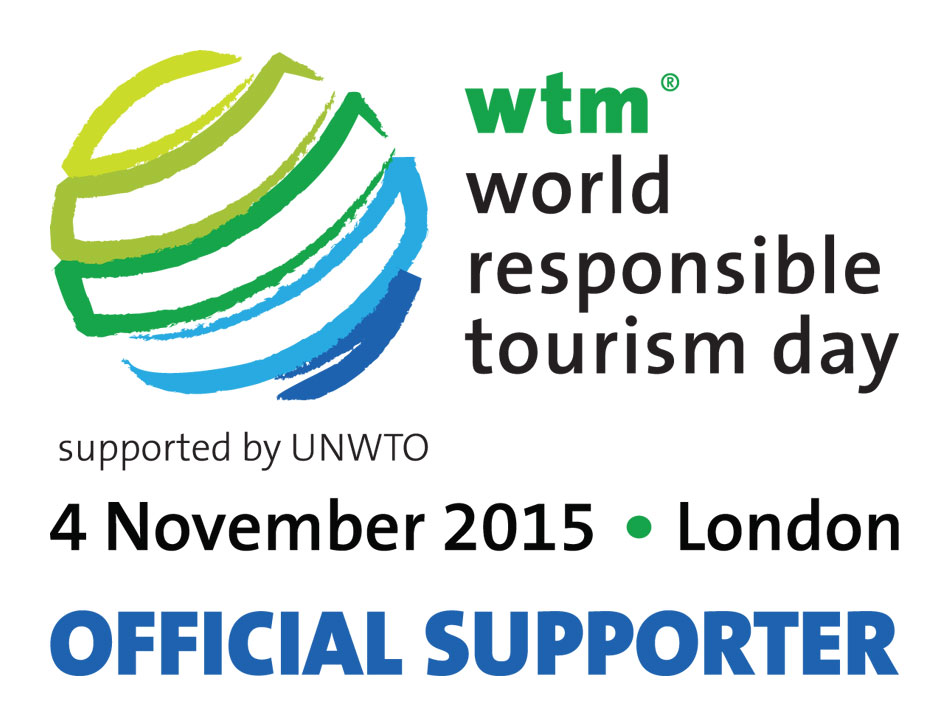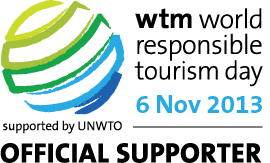|
25.02.2015 Sustaining Rural Russian lifestyles with Absolute Siberia Alexey Nikiforov has been working in tourism for nearly 30 years. He laid the first ecotrails and developed the first tours for foreigner visitors to the Lake Baikal region back in the 1980s. he talks to Jeremy Smith about the company he founded, Absolute Siberia. What inspired you to create your business? 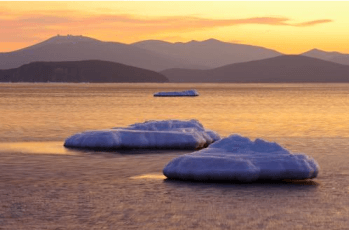 It all began back in the beginning of this millennium. After my 3rd visit to the village of Bolshoye Goloustnoye, located on the shore of Lake Baikal, about 120 km away from the regional center – the city of Irkutsk where I live. After an ill-fated “perestroika” and the collapse of the USSR in early 90s, the common people of Siberia – like the majority of others in Russia living in rural areas – found themselves in a more difficult economic situation than ever before. It all began back in the beginning of this millennium. After my 3rd visit to the village of Bolshoye Goloustnoye, located on the shore of Lake Baikal, about 120 km away from the regional center – the city of Irkutsk where I live. After an ill-fated “perestroika” and the collapse of the USSR in early 90s, the common people of Siberia – like the majority of others in Russia living in rural areas – found themselves in a more difficult economic situation than ever before.With the collapse of the socialist planned system of economic development, most of their enterprises, which were formerly run by the state, were shut down, enterprises such as saw mills, collective farms, fishing cooperatives etc. People were left to fend for themselves, and few of them who had skills or innate entrepreneurial characteristics managed to find their way. Many struggled to live, or at least manage to make ends meet through raising a few cattle or poultry, which was not enough for decent life even in the rural area.
But around them there was beautiful natural environment, and their own way of life and culture still contained pure Russian and Siberian features, which represented a great attraction to Western visitors. So I decided to venture into their life in a sustainable, responsible manner. I started developing eco-tourism projects with agro-tourism elements that would involve the locals directly as host families, guides for the eco-trips through the virgin taiga-woods to Dry Lake, include natural food from their gardens and farm, fishing trips on their boats, showing amateur folk concerts etc.
How does being responsible help your business attract potential customers?
.png) Unfortunately, in present day Russia there’s not even a real definition of what is responsible tourism. Mostly, they talk in the market about ecotourism, though applying this term for anything that is associated with travel to or stay in the open air amidst natural environment. Until recently even sustainable tourism was not used in Russia. Or where it was used, it was often misused. Unfortunately, in present day Russia there’s not even a real definition of what is responsible tourism. Mostly, they talk in the market about ecotourism, though applying this term for anything that is associated with travel to or stay in the open air amidst natural environment. Until recently even sustainable tourism was not used in Russia. Or where it was used, it was often misused. We don’t no directly say that we do responsible tourism, but in our texts and reports of the events that we operated (like the Baikal Ice Marathon) we emphasize the importance of responsibile tour operators or for any tour developed with communities and the natural environment. Also, and since we are well now familiar with World Responsible Tourism Day, we use the logo of WRTD, and are ready to explain what it is when asked (which now often happens). Also, we readily provide materials about responsible tourism and our projects. A few times we have provided content for the most popular web resource and online magazine in Eastern Siberia – Pribaikal (you can see here an article in Russian).
How do you engage guests in your responsible tourism activities?
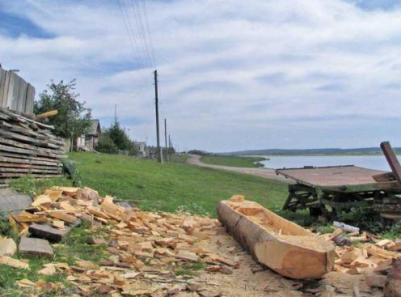 We include meetings with locals, and we ask travellers to bring some small and useful gifts to children (not toys but something they can use as work materials to produce their handicrafts – beads for example, or instruments). If you look at the description of a tour we co-run with a UK-based travel company to help the Tofa people preserve their ancient way of life, traditional culture, and natural existence, you’ll see we make it clear that ‘the project aims to create jobs for the Tofa people based on their traditional way of living through the development of sustainable tourism’ and that ‘using eco- and ethno-tourism we to plan to help reestablish the Northern reindeer population whilst learning about its people and culture.’ We include meetings with locals, and we ask travellers to bring some small and useful gifts to children (not toys but something they can use as work materials to produce their handicrafts – beads for example, or instruments). If you look at the description of a tour we co-run with a UK-based travel company to help the Tofa people preserve their ancient way of life, traditional culture, and natural existence, you’ll see we make it clear that ‘the project aims to create jobs for the Tofa people based on their traditional way of living through the development of sustainable tourism’ and that ‘using eco- and ethno-tourism we to plan to help reestablish the Northern reindeer population whilst learning about its people and culture.’What is the responsible tourism initiative of which you are most proud?
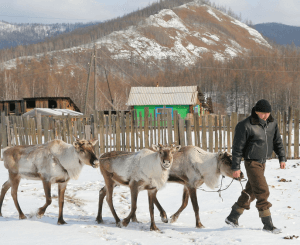 Our Return of the Reindeer Project. This July we brought people from 9 countries in one trip to the reindeer breeders. We don’t disturb the breeders patterns, rather we’ll go out and look for them, since we have no right to change their traditional migration routes just to suit the needs of tourism. The success of our programme is enabling the construction of an ethno-cultural and visitor center in the village of Alygdzher inTofalaria, as well as providing funds for making up and improving the system of trails andpassages for reindeer herders during seasonal migrations. Our Return of the Reindeer Project. This July we brought people from 9 countries in one trip to the reindeer breeders. We don’t disturb the breeders patterns, rather we’ll go out and look for them, since we have no right to change their traditional migration routes just to suit the needs of tourism. The success of our programme is enabling the construction of an ethno-cultural and visitor center in the village of Alygdzher inTofalaria, as well as providing funds for making up and improving the system of trails andpassages for reindeer herders during seasonal migrations.What has been biggest challenge you have faced? And how have you addressed it?
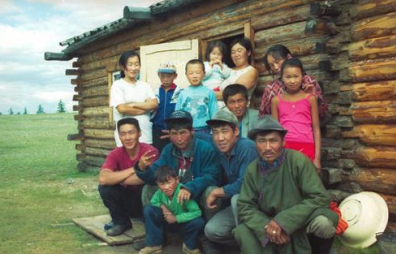 In the beginning I had to persuade the locals that hosting the foreign people as tourists for stays in the family can be very interesting and really a cultural exchange for both sides. Because althgough the locals were very hospitable to travelers, they were still reluctant to let any stranger in for a night. The most they were ready for was to provide some lunches or picnic meals, but they felt at least uncomfortable or even were scared to host travelers at their private homes. In the beginning I had to persuade the locals that hosting the foreign people as tourists for stays in the family can be very interesting and really a cultural exchange for both sides. Because althgough the locals were very hospitable to travelers, they were still reluctant to let any stranger in for a night. The most they were ready for was to provide some lunches or picnic meals, but they felt at least uncomfortable or even were scared to host travelers at their private homes. It took me a while to persuade the locals. But two years after we had started the project, we were sending an average of 9 groups, each made up of 10 to 17 tourists for at least 2-night’s stay in this village during summer. Following this, more tour companies would start actively marketing similar tours. Now these local families are no longer shy to host “strangers” from all over the world. Their life has become more interesting, revenues from tourism have made them happier, and they feel less dependent upon the government. It has also helped to revive their culture through relearning of old songs that they and their children might have been already nearly forgotten. Once they were willing to show more of their life to their guests, they began to looker deeper into the details of their past, began to recollect their ancestors, and reproduce former national customs.
________________________________________________________________________________________________
 Jeremy Smith is a writer and editor specialising in responsible tourism. He is the editor of Travindy.com, an industry news site focussing on developments in sustainable and responsible tourism. He also works with ethical and sustainable travel businesses, developing their communications, brands, marketing and digital & social media strategy.
news archive... |
|
World time
--:-- :--
--.--.--
Our TOURS by CategoryOur Special ServicesSearch
Send an e-mail:
|
language: ENG / RUS
© All rights reserved by Absolute Siberia LTD.
|
Weather in Irkutsk
Our NEWS 25.02 2015 15.05 2013 |






